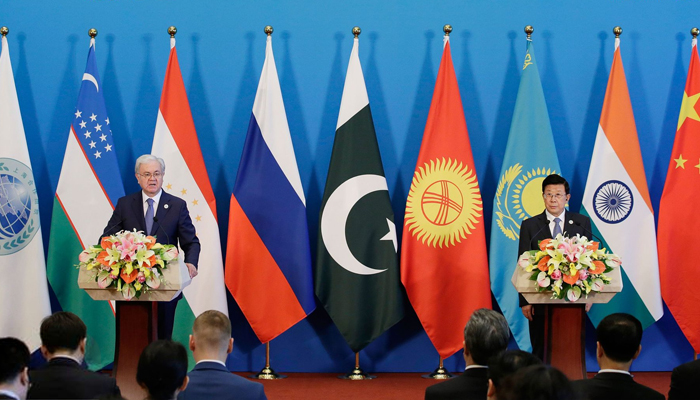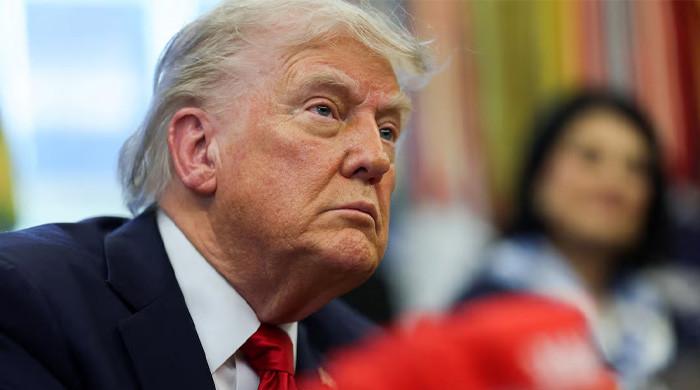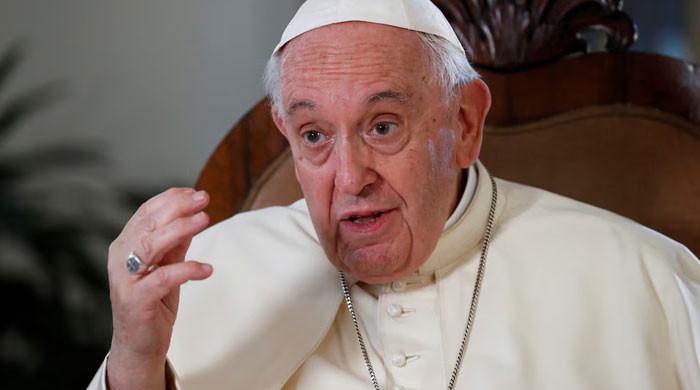SCO reflects strong attraction after Pak, Indian membership: Chinese FO
It fully reflects the strong attraction of the multination group, a spokesperson for the Chinese foreign ministry said
June 09, 2018

BEIJING: The cross-state cooperation in Shanghai Cooperation Organisation (SCO) has become broader and the group's international influence further enhanced after Pakistan and India assumed full membership, the Chinese Ministry of Foreign Affairs said Wednesday.
The organisation has consistently adhered to the principle of openness and actively carried out foreign exchanges, Hua Chunying, the Chinese foreign ministry spokesperson, said, adding that more and more countries at present want to deepen their cooperation within the SCO.
This, she noted, fully reflected the strong attraction of the multination group.
“The SCO member states attach great importance to the wishes of relevant countries and will sincerely study it in accordance with the provisions of the relevant documents of the SCO and the principle of consensus,” Hua added.
Jointly led by Russia and China, the SCO was launched in 2001 to combat radicalism and other security concerns in their own countries and across Central Asia.
India and Pakistan, the two new members, were added last year and Iran has been knocking at the door. Tehran is currently an observer rather than a full member of a bloc that also includes four ex-Soviet Central Asian republics.
However, “the traditional hostility between India and Pakistan could affect the efficiency of the SCO’s decision-making process,” Sun Zhuangzhi, the head of the SCO Research Centre affiliated to the Chinese Academy of Social Sciences, wrote in the official China Daily.
In response to a question about a recent statement made by Ayatollah Ali Khamenei, Iran’s supreme leader, pertaining to an increase in the uranium enrichment capacity if a nuclear deal falls with the world powers, she said: "Under the current situation, China hopes that all parties concerned can proceed from the long-term and overall interests."
China also wishes for the countries to “continue to maintain and implement comprehensive agreements, and fully implement their agreement obligations”, Hua mentioned.
She further explained that it is in the common interest of the international fraternity and would be helpful to maintain the international nuclear non-proliferation system as well as peace and stability in the Middle East.
According to Hua, China has repeatedly stated its position regarding the comprehensive agreement on the Iranian nuclear issue.
Khamenei is attending the latest SCO summit, to start today (June 9) and continue through June 10 in Qingdao Shandong province of China, with Iran, Afghanistan, and Mongolia as the observer states.
“We believe that all parties should fulfil their due responsibilities and obligations and maintain the solemnity and authority of the agreement,“ Hua added.
The attendance of Iranian President Hassan Rouhani also offers China and Russia an opportunity to reaffirm their commitment to the Iran nuclear deal.
US President Donald Trump had withdrawn the United States from the 2015 deal last month.
As to whether the nuclear issue would be discussed with Iran’s leader during the SCO summit, Hua said they did not want Iran overshadowing the summit.
“We hope that all parties will focus on the theme of the summit,” she said, "and focus on pragmatic cooperation in all fields under the new situation of the SCO so that the SCO will be able to display new vigour and energy in Qingdao."
Further, the Saturday-Sunday summit in the northern Chinese port city comes ahead of a historic planned meeting next week between North Korean leader Kim Jong Un and Trump in Singapore.
—Additional information from Reuters











